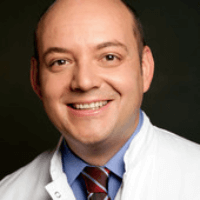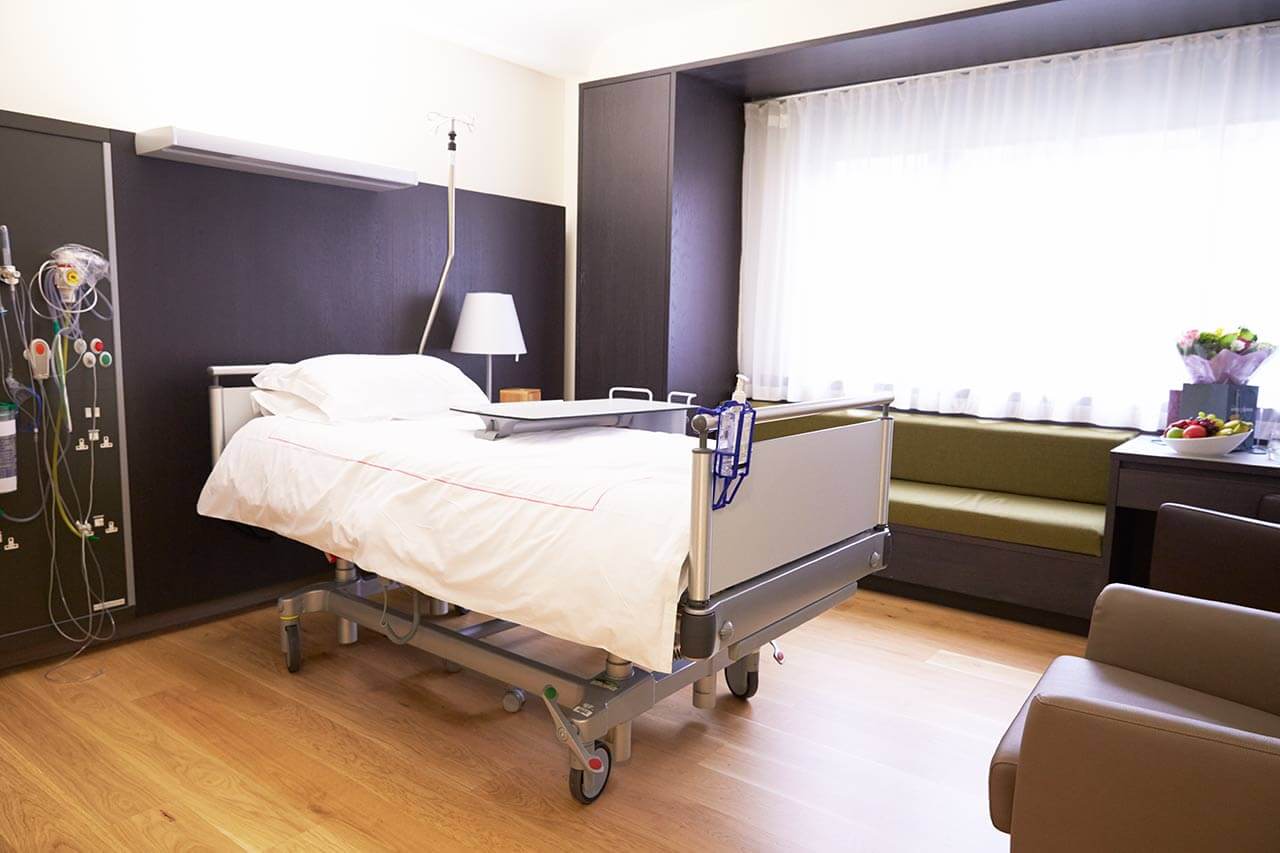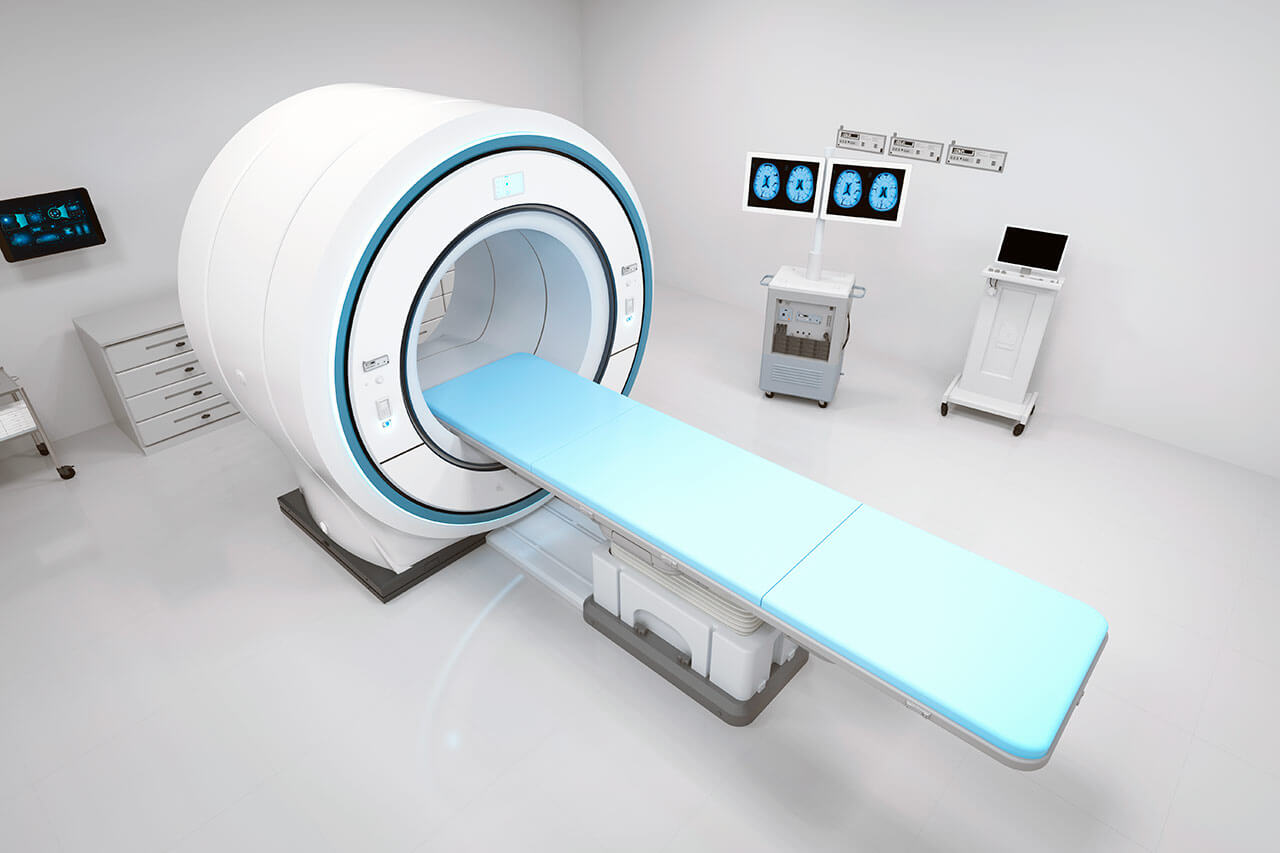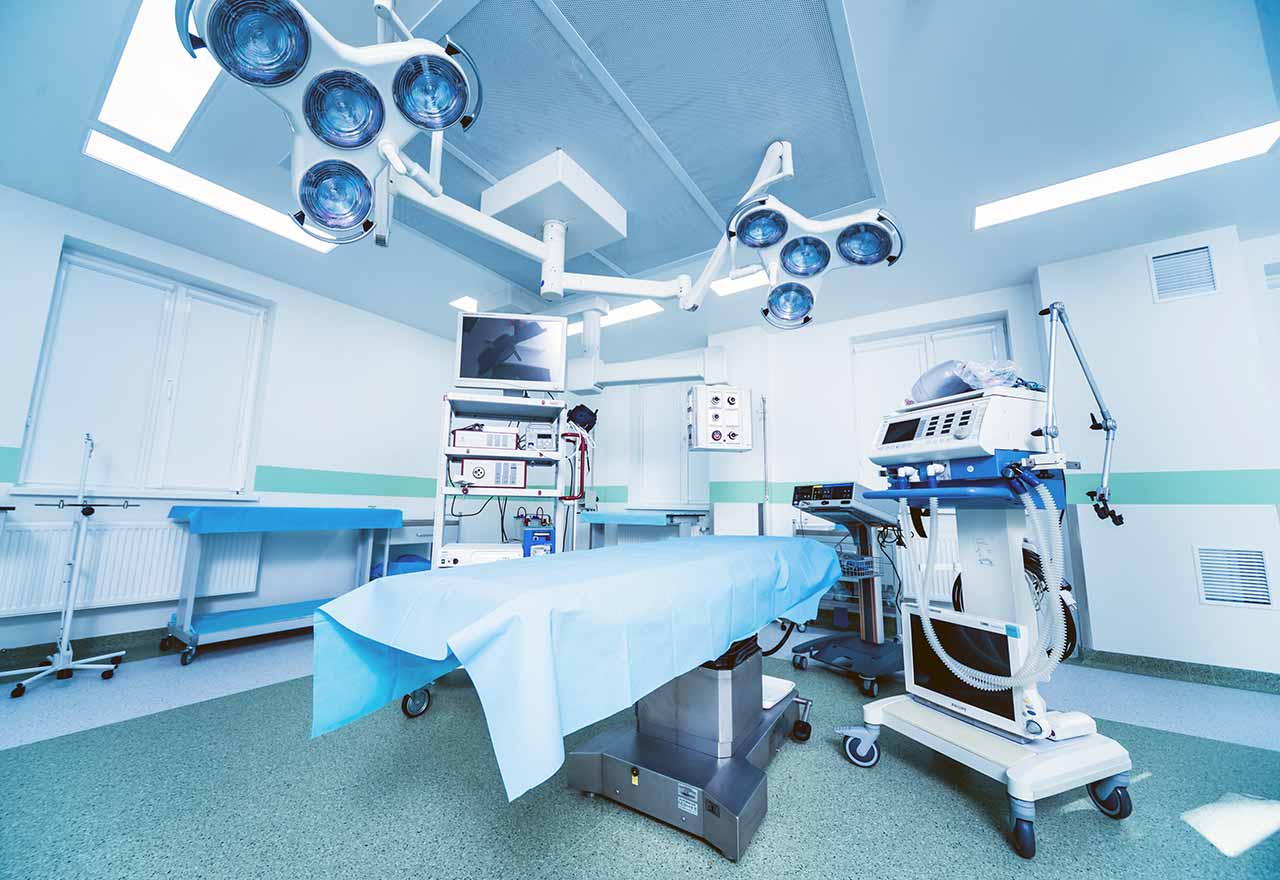
The program includes:
- Initial presentation in the clinic
- clinical history taking
- review of medical records
- physical examination
- urological examination
- laboratory tests:
- complete blood count
- general urine analysis
- biochemical analysis of blood
- inflammation indicators (CRP, ESR)
- indicators blood coagulation
- tumor marker, PSA
- ultrasound of the urogenital system
- CT/MRI of the abdomen and pelvis
- preoperative care
- surgical drainage of the abscess
- symptomatic treatment
- control examinations
- the cost of essential medicines and materials
- nursing services
- full hospital accommodation
- explanation of future recommendations
Required documents
- Medical records
- US scan, MRI/CT scan (if available)
Service
You may also book:
 BookingHealth Price from:
BookingHealth Price from:
About the department
The Department of Adult and Pediatric Urology, Andrology at the Alfried Krupp Hospital in Essen-Steele carries out high-precision diagnostics and effective treatment of the entire spectrum of diseases of the urinary system in men and women, as well as pathologies of the reproductive system in men. Men with erectile dysfunction, infertility and other andrological disorders can also undergo treatment here. The specialists in pediatric urology deal with the surgical treatment of phimosis and cryptorchidism, as well as with conservative therapy for urinary incontinence in children. The key focus of the team of doctors is on the treatment of kidney, adrenal, bladder, urethral, ureteral, prostate, testicular and penile malignancies. The department enjoys the status of the Reference Center on da Vinci Robotic Surgery, and its specialists successfully apply this innovative type of surgical treatment. The department is also certified by the German Cancer Society (DKG) as the Prostate Cancer Center, which indicates the high quality and effectiveness of treatment of the most common urologic cancer in men. Each department's patient is provided with individual medical care. With appropriate clinical indications, urologists of the medical facility prefer conservative therapy and/or low traumatic surgical interventions, while open surgery rarely becomes an option of choice.
The department is headed by Dr. med. Stephan Buse. The specialist was one of the first doctors in Germany who began performing robot-assisted interventions using the da Vinci surgical system in 2005. The surgeon has already performed more than 4,500 robot-assisted interventions for urologic diseases and is considered one of the best experts in this field in the whole of Germany.
The department boasts a unique and rich experience in the treatment of malignant diseases of the urinary system and reproductive system in men. The most common diagnosis in the department's clinical practice is prostate cancer. The patient with this oncopathology requires comprehensive therapy, which is based on the resection of a malignant tumor with a prostate capsule, seminal vesicles and adjacent lymph nodes. These surgical procedures are usually performed in the department using the innovative da Vinci surgical system, with minimally invasive techniques. The comprehensive treatment of prostate cancer often includes radiation therapy. As a rule, the treatment regimen includes chemotherapy or hormone therapy. Since prostate cancer progresses very slowly, some patients with the early stages of cancer are recommended "active surveillance" tactics.
The medical facility is also competent in the treatment of kidney, bladder, testicular and penile cancer. To achieve a successful treatment outcome in the above mentioned malignant diseases, the department's specialists perform sparing surgical interventions, including robot-assisted ones, to resect a tumor, and sometimes part of an organ (resection of a part of a kidney) or an entire organ (resection of a bladder). Surgery is complemented by chemotherapy, radiation therapy and other treatments. The treatment regimen is developed for each patient on an individual basis by an interdisciplinary team of doctors, including urologists, oncologists, radiation therapists, radiologists and others. Psychological care is provided, if required.
The department's therapeutic offer also includes the treatment of benign urologic diseases. The department has all the modern resources for the effective treatment of benign prostatic hyperplasia. Such advanced techniques as GreenLight, thulium laser therapy and Rezūm Water Vapor Therapy are successfully applied here. In more complex clinical cases, a transurethral resection of the prostate (TURP) is recommended for a patient with benign prostatic hyperplasia. Open surgery is a last-line therapy. The medical facility also provides effective treatment for such benign pathologies as kidney stone disease and urinary incontinence.
The department also admits young patients suffering from genitourinary diseases. The service range includes circumcision for the treatment of phimosis (narrowing of the foreskin of the penis), surgical repair of cryptorchidism (undescended testicles) and conservative therapy for urinary incontinence in children. In most cases, the treatment of pediatric urological diseases is carried out on an outpatient basis, without the need for hospitalization.
Another important field of clinical activity of the department's medical team is andrology. The focus in this field is on the admission of patients suffering from erectile dysfunction, male infertility and hypogonadism (testicular failure). The department also holds consultations on contraception and vasovasostomy to restore fertility after surgical sterilization in men.
The department's main clinical focuses include:
- Diagnostics and treatment of urologic malignancies
- Prostate cancer
- Robot-assisted surgery with da Vinci surgical system
- Radiation therapy
- Chemotherapy
- Hormone therapy
- Kidney cancer
- Nephrectomy (open, laparoscopic, robot-assisted surgery – depending on the size and location of the tumor)
- Targeted therapy for metastatic kidney cancer
- Bladder cancer
- Endoscopic tumor resection (for superficial neoplasms)
- Cystectomy (bladder removal) with orthotopic neobladder formation
- Da Vinci robot-assisted surgery
- Testicular cancer
- Surgical tumor resection
- Radiation therapy
- Chemotherapy
- Penile cancer
- Surgical tumor resection
- Radiation therapy
- Chemotherapy
- Prostate cancer
- Diagnostics and treatment of benign urologic diseases
- Benign prostatic hyperplasia
- GreenLight laser therapy
- Thulium laser therapy
- Rezūm Water Vapor Therapy
- Transurethral resection of the prostate (TURP)
- Kidney stone disease
- Extracorporeal shock wave lithotripsy (ESWL)
- Ureterorenoscopy
- Percutaneous nephrolitholapaxy
- Da Vinci robot-assisted surgery (in complex clinical cases)
- Urinary incontinence
- Drug therapy
- Therapeutic exercises for strengthening pelvic floor muscles
- Electrical stimulation and biofeedback
- Pessary therapy
- Injection therapy
- Reconstructive interventions
- Sacrocolpopexy
- Sling procedures (TVT, ARGUS)
- Artificial bladder sphincter placement surgery
- Robot-assisted interventions for urinary incontinence
- Benign prostatic hyperplasia
- Diagnostics and treatment of urologic diseases in children
- Conservative treatment of urinary incontinence in children
- Circumcision for phimosis
- Surgery for cryptorchidism (undescended testicles)
- Diagnostics and treatment of andrologic diseases
- Erectile dysfunction
- Male infertility
- Age-related changes in men
- Hypogonadism
- Vasovasostomy to restore fertility after surgical sterilization in men
- Diagnostics and treatment of other diseases
Curriculum vitae
Higher Education and Professional Career
- 1993 - 2000 Study of Human Medicine, Heinrich Heine University Duesseldorf; scientific internships in New York, Malta, Vienna, St. Gallen.
- 2000 - 2003 Assistant Physician, Department of Urology, Cantonal Hospital St.Gallen, Switzerland.
- 2003 - 2004 Assistant Physician and Research Fellow, Department of Abdominal and Transplant Surgery, University Hospital Zurich, Switzerland.
- 2004 - 2006 Assistant Physician and Research Fellow, Department of Urology, University Hospital Heidelberg.
- 2006 - 2009 Senior Physician and Research Fellow, Department of Urology, University Hospital Heidelberg.
- Since 2009 Chief Physician of the Department of Adult and Pediatric Urology, Andrology and Head of the Section for Robotic Surgery at the Alfried Krupp Hospital in Essen-Steele.
- Since 2012 Deputy Medical Director of the Alfried Krupp Hospital in Essen-Steele.
Clinical Career in Minimally Invasive Surgery
- Since 2003 Clinical experience in laparoscopy and minimally invasive surgery.
- Since 2004 Clinical experience in prostate laser surgery (thulium laser and GreenLight laser).
- Since 2005 Clinical experience in da Vinci robot-assisted surgery.
- Since 2016 Head of the certified Training Center for Robotic Surgery (ERUS), Essen.
Clinical and Research Interests
- Minimally invasive surgery.
- Laser surgery.
- Robot-assisted surgery.
- Treatment of urological cancers.
Memberships in Professional Societies
- Since 2001 German Urological Society (DGU).
- Since 2001 European Association of Urology (EAU).
- Since 2009 German Society for Robot-Assisted Urology (DGRU).
- Since 2009 Society of Robotic Surgery (SRS).
- Since 2010 North Rhine-Westphalia Society of Urology (NRWGU).
- Since 2016 Associate Member of the European Association of Urology (EAU).
Photo of the doctor: (c) Alfried Krupp Krankenhaus
About hospital
The Alfried Krupp Hospital in Essen-Steele is one of the best and most advanced medical facilities in the Ruhr area. The medical complex is an academic hospital of the University of Duisburg-Essen, thanks to which it extremely quickly implements innovative diagnostic and therapeutic methods into clinical practice. The hospital is supported by the Alfried Krupp von Bohlen und Halbach Foundation. The doors of the medical complex were first opened for patients back in 1870, and in 1980 the hospital building was completely renovated and upgraded with modern equipment. The hospital has seven specialized departments, each of which has a competent team of highly qualified doctors specializing in the treatment of a particular group of diseases. The patients of the hospital receive inpatient and outpatient medical care. The hospital has 320 beds for patient hospitalization.
The priority areas of work of the medical facility include general and abdominal surgery, plastic, aesthetic and reconstructive surgery, hand surgery, treatment of ENT diseases, musculoskeletal injuries and diseases, gastrointestinal and respiratory diseases, as well as treatment of urologic diseases. The doctors working at the hospital have excellent qualifications in laparoscopic, endoscopic and da Vinci robot-assisted surgery. Therefore, if surgical treatment is required, open traumatic operations are performed very rarely – only in especially complex clinical cases. The use of modern surgical techniques avoids extensive skin and soft tissue incisions, reduces surgical risks and the recovery period.
The medical team of the hospital consists of leading German doctors with profound clinical training and successful experience. Doctors admit patients with diseases of varying severity, including serious pathological conditions, and therefore the patients' credit of trust in specialists is very high. Particular attention is paid to an individual approach to each patient and his clinical case. In addition, doctors take care of the comfort of their patients during the therapeutic process – the patient with his needs and wishes is always a top priority.
Photo: (с) depositphotos
Accommodation in hospital
Patients rooms
The patients of the Alfried Krupp Hospital in Essen-Steele live in single comfortable rooms with all amenities. Each patient room has an ensuite bathroom with shower and toilet. The furnishing of the patient room includes an automatically adjustable bed, a bedside table, a table and chairs, a wardrobe, a telephone and a TV. The rooms also have Wi-Fi.
The hospital offers enhanced-comfort rooms. Unlike standard rooms, such patient rooms additionally include upholstered furniture, a safe, a mini fridge and an air conditioner. The bathroom has towels, a bathrobe, toiletries and a hairdryer. Fresh newspapers, seasonal fruits, coffee and tea are brought to the patient room every day upon the request.
Meals and Menus
The patients of the hospital are offered three meals a day. Breakfast and dinner are served buffet style, while for lunch patients are offered a choice of several set menus. Patients staying in the enhanced-comfort rooms are offered a special menu with a wide range of delicious European dishes.
If for some reason you do not eat all the foods, you will be offered an individual menu. Please inform the medical staff about your dietary preferences prior to the treatment.
Further details
Standard rooms include:
Religion
The services of representatives of religions are available upon request.
Accompanying person
During an inpatient program, an accompanying person can stay with you in the patient room or in a hotel of your choice.
Hotel
During an outpatient program, you can stay in a hotel of your choice. The managers will help you choose the most suitable options.




